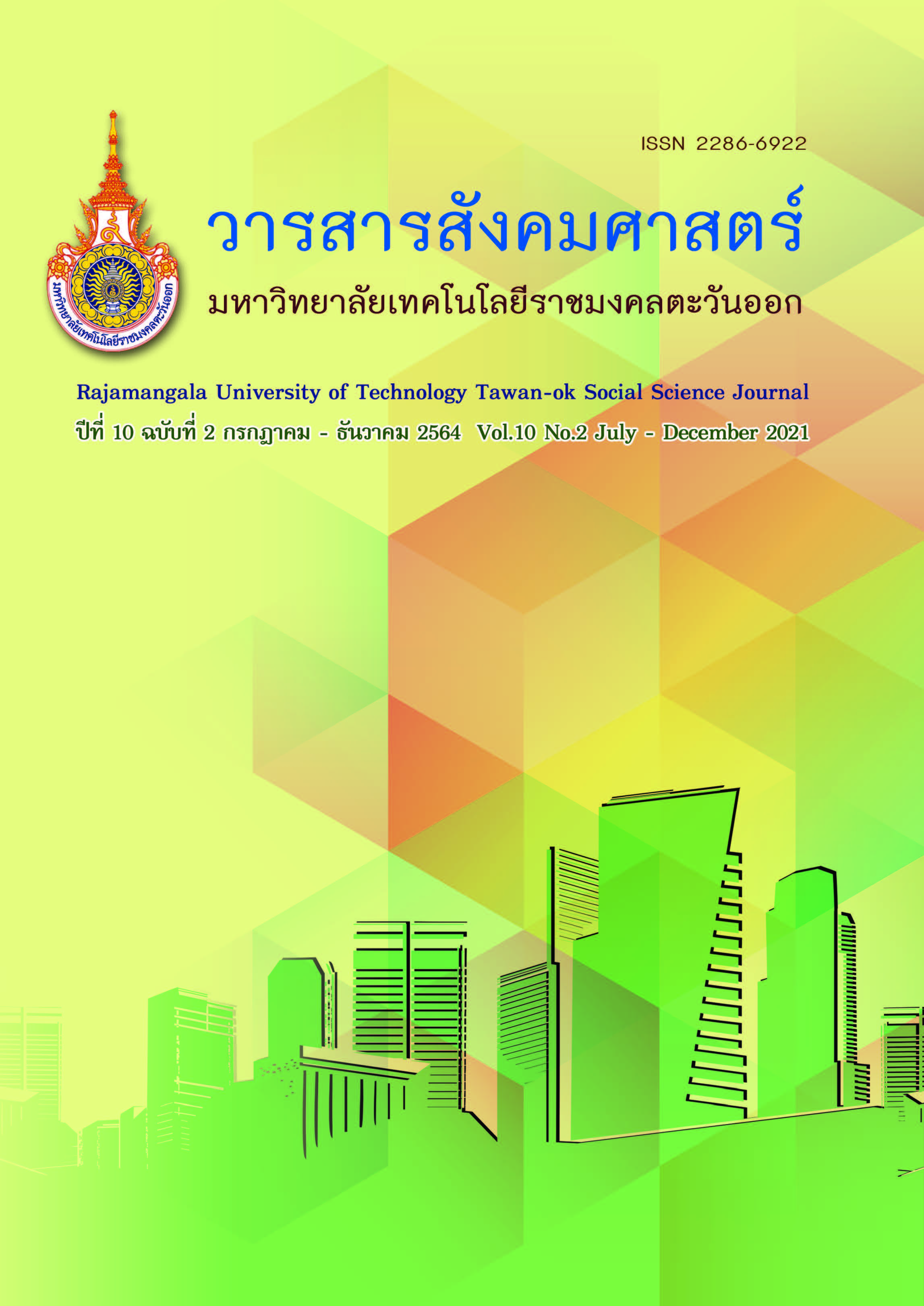Biological database of non-Thai citizens
Main Article Content
Abstract
Today many people are immigrating to Thailand unlawfully. Whether they are immigration to settle in Thailand or a group of people smuggled into the city illegally Including legal immigration for tourism or study but change the objective to make a career in the country. Coupled with globalization, many countries have to prepare to deal with new forms of security problems like never before especially transnational crime
Research studies on the necessity of establishing a biological database of non-Thai citizens the objectives are 1. to study a model for preparing a biological database of persons abroad 2. to study patterns for the utilization of biological information of persons in maintaining order and security in western countries; and 3. to study and formulate biological databases of persons without Thai nationalities. The researcher used a qualitative research model by using the review literature method by studying the guidelines for dealing with non-national groups. (Stateless people, diaspora, immigrants, and refugees) in the context of western countries to determine a model for the management of non-Thai citizens who live in Thailand.
Nowadays, all countries are concerned with security and human rights. Coupled with the movement of people including the information under globalization is easily possible. If there is a mechanism or database for controlling or organizing people in moving or roaming a border especially in ASEAN countries it can be a tool for detecting and preventing transnational offenses.
as well.
Article Details
References
Aaron Opoku Amankwaa. (2 May 2018). Forensic DNA retention: Public perspective studies in the United Kingdom and around the world. Science & Justice 58, หน้า 455–464.
Aaron Opoku AmankwaaCarole McCartney. (2019). The effectiveness of the UK national DNA database. Forensic Science International: Synergy.
Anoop K. Verma,Pratibha Singh,Raghvendra Singh Sachil Kumar. (2016). Current Scenario of forensic DNA databases in or outside India and their relative risk. Egyptian Journal of Forensic Sciences.
Atuguba et al. (2020). Statelessness in West Africa: An Assessment of Stateless Populations and Legal, Policy, and Administrative Frameworks in Ghana. Journal on Migration and Human Security, 14-31.
Australian Government. (28 July 2010). เข้าถึงได้จาก https://www.alrc.gov.au: https://www.alrc.gov.au
Ben Gidley, Alessio Cangiano, Zoe Khor, Dina Kiwan. (2012). Citizenship and Integration in the UK.
Brunei Government. (2014). เข้าถึงได้จาก LAWS OF BRUNEI: http://www.agc.gov.bn/AGC%20Images/LAWS/ACT_PDF/cap202.pdf
Catherine Allerton. (2017). Contested Statelessness in Sabah, Malaysia: Irregularity and the Politics of Recognition. JOURNAL OF IMMIGRANT & REFUGEE STUDIES, 250–268.
COUNCIL OF THE EUROPEAN UNION. (7 July 2005). https://ec.europa.eu/. เข้าถึงได้จาก https://ec.europa.eu/anti-fraud/sites/antifraud/files/docs/body/prumtr.pdf
DIANNE GALEA. (May 2016). The Legality of DNA databases in the Criminal Investigation .
Ergün Özgür. (2008). The North Caucasian and Abkhaz Diasporas; Their Lobbying Activities in Turkey. CAUCASUS STUDIES: Migration, Society and Language (หน้า 80-87). Sweden: Malmö University.
eu-LISA. (2020). Eurodac – 2019 Annual Report. European Union Agency for the Operational Management of Large-Scale IT Systems in the Area of.
HOUSE OF LORDS European Union Committee. (2015). The United Kingdom’s participation in Prüm. London: Authority of the House of Lords.
https://www.thalesgroup.com. (2020). เข้าถึงได้จาก https://www.thalesgroup.com/en/markets/digital-identity-and-security/banking-payment/issuance/id-verification/know-your-customer
Human Right Watch. (15 May 2017). China: Police DNA Database Threatens Privacy.
International Organization for Migration. (2019). WORLD MIGRATION REPORT 2020. Switzerland.
Jocelyn Kaiser. (7 November 2019). https://www.sciencemag.org/. เรียกใช้เมื่อ 18 November 2019
Jr. Warren R. Webster. (2000). DNA Database Statutes & Privacy in the Information Age. Health Matrix: The Journal of LawMedicine , หน้า 124.
L.A. McCallum, C.Storey,J.P. Whitaker. C.N. Maguire. (8 2014). Familial searching: A specialist forensic DNA profiling service utilising the National DNA Databade to identify unknown offenders via their relative- The UK experience. Forensic Science international :Genetics, หน้า 1-9.
Maya Prabhu and Madelon Baranoski. (2012). Forensic Mental Health Professionals in the Immigration Process. The Psychiatric clinics of North America, 929-946.
Michael Caster. (2016). Eliminating Statelessness in Southeast Asia ASEAN can take some reasonable measures to address the plight. THE DIPLOMAT.
Ministry of the Solicitor General. (4 August 2016). เข้าถึงได้จาก https://www.mcscs.jus.gov.on.ca/: https://www.mcscs.jus.gov.on.ca/english/centre_forensic/InformationforInvestigatorsSubmitters/TechnicalInformationSheets/Biology/CFS_dna_databank_tech.html
Newsbytes.PH. (21 July 2019). House bill seeks creation of PH DNA Database Analysis System.
Östen Wahlbeck. (2008 ). Citizenship and immigration in Finland : The Nationality Act 2003 in context. Canadian Diversity , 47-50.
Patricia Ehrkamp and Helga Leitner. (2003). BEYOND NATIONAL CITIZENSHIP: TURKISH IMMIGRANTS AND THE (RE)CONSTRUCTION OF CITIZENSHIP IN GERMANY. Urban Geography, 127–146.
Paul Luif . (2007). The Treaty of Prüm: A Replay of Schengen? . European Union Studies Association,. Canada.
Paul Luif and Florian Trauner. (2013). The Prüm Process: the effects of enhanced cooperation within Europe and with the United States in combating serious crime. Springer, 101-118. .
Pieter Bevelander and Ravi Pendakur. (2009). Citizenship, Co-ethnic Populations and Employment Probabilities of Immigrants in Sweden. Germany: Forschungsinstitut zur Zukunft der Arbeit Institute for the Study of Labor.
Registration of Criminals (Amendment) Bill. (31 October 2002). Singapore.
Robin Williams & Matthias Wienroth. (ม.ป.ป.). DNA TECHNOLOGY AND POLICE INVESTIGATIONS.
Thomas Manch. (24 May 2019). The New Zealand-made DNA software solving homicides around the world. New Zealand. เข้าถึงได้จาก https://www.stuff.co.nz/.
Torsten Heinemann and Thomas Lemke. (9 September 2014). The Biology of Citizenship: Immigration, DNA Testing, and the State. เข้าถึงได้จาก viewpointmag.com: http://viewpointmag.com/
Victor Toom. (2014). Trumping Communitarianism: Crime Control and Forensic DNA Typing and Databasing in Singapore. East Asian Science, Technology and Society: An International Journal , หน้า 273-296.
VoiceTV. (ม.ป.ป.). สรุปเหตุการณ์ก่อการร้ายระดับสากลในไทย. เข้าถึงได้จาก VoiceTV: https://www.voicetv.co.th/read/31080
Yuichi Kodama, Takatomo Fujisawa, Toshiaki Katayama,Yoshihiro Okuda, Eli Kaminuma, Osamu Ogasawara, Kousaku Okubo,Yasukazu Nakamura and Toshihisa Takagi Jun Mashima. (2017). DNA Data Bank of Japan. Nucleic Acids Research.
กระทรวงมหาดไทย. (ม.ป.ป.). เข้าถึงได้จาก http://www.local.moi.go.th: http://www.local.moi.go.th/document%207.pdf
กระทรวงมหาดไทย. (2556). การสำรวจกลุ่มเป้าหมายเพื่อตรวจพิสูจน์สารพันธุกรรม (DNA).
กลุ่มงานติดตามและประเมินผล สำนักนโยบายและแผน สำนักงานวุฒิสภา. (ม.ป.ป.). คู่มือการติดตามและประเมินผล.
ทวียศ ศรีเกต. (2558). ก่อการร้าย...ภัยคุกคามต่อมวลมนุษยชาติ. ส านักงานเลขาธิการสภาผู้แทนราษฎร.
นายจิตรพรต พัฒนสิน. (2558). ข้อมูลทั่วไปเกี่ยวกับสิ่งแวดล้อมของประเทศออสเตรเลีย. การประชุมร่างกฎหมาย. ประเทศออสเตรเลีย: สำนักงานคณะกรรมการกฤษฎีกา.
รศ.ดร.สุรสิทธิ์ วชิรขจร สถาบันบัณฑิตพัฒนาบริหารศาสตร์. (ม.ป.ป.). http://www.dop.go.th/download/formdownload/download_th_20161904141343_1.pdf.
สถาบันนิติวิทยาศาสตร์. (ม.ป.ป.). พระราชบัญญัติการให้บริการทางนิติวิทยาศาสตร์ พ.ศ.2559 คู่มือการให้บริการด้านนิติวิทยาศาสตร์. กรุงเทพฯ.
สถาบันพระปกเกล้า. (ม.ป.ป.). http://wiki.kpi.ac.th/index.php. เรียกใช้เมื่อ 5 พฤศจิกายน 2562 จาก http://wiki.kpi.ac.th/.
ส่วนการทะเบียนราษฎร สำนักบริหารการทะเบียน กรมการปกครอง. (กันยายน 2557). คู่มือการอ่านผลการตรวจสารพันธุกรรม.
สิทธิชัย โชคสวัสดิ์ไพศาล และคณะ. (2547). The EU’s four freedoms: Free movement of people. สำนักงานศาลยุติธรรม.
สุภางค์ จันทวานิช. (2551). การวิเคราะห์ข้อมูลในการวิจัยเชิงคุณภาพ. กรุงเทพฯ : จุฬาลงกรณ์มหาวิทยาลัย.


